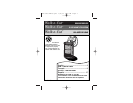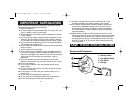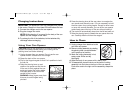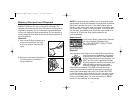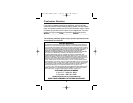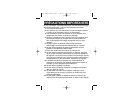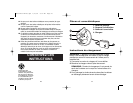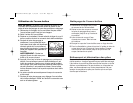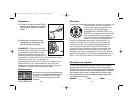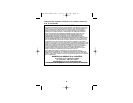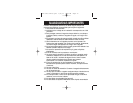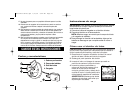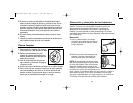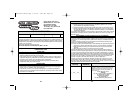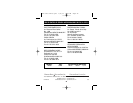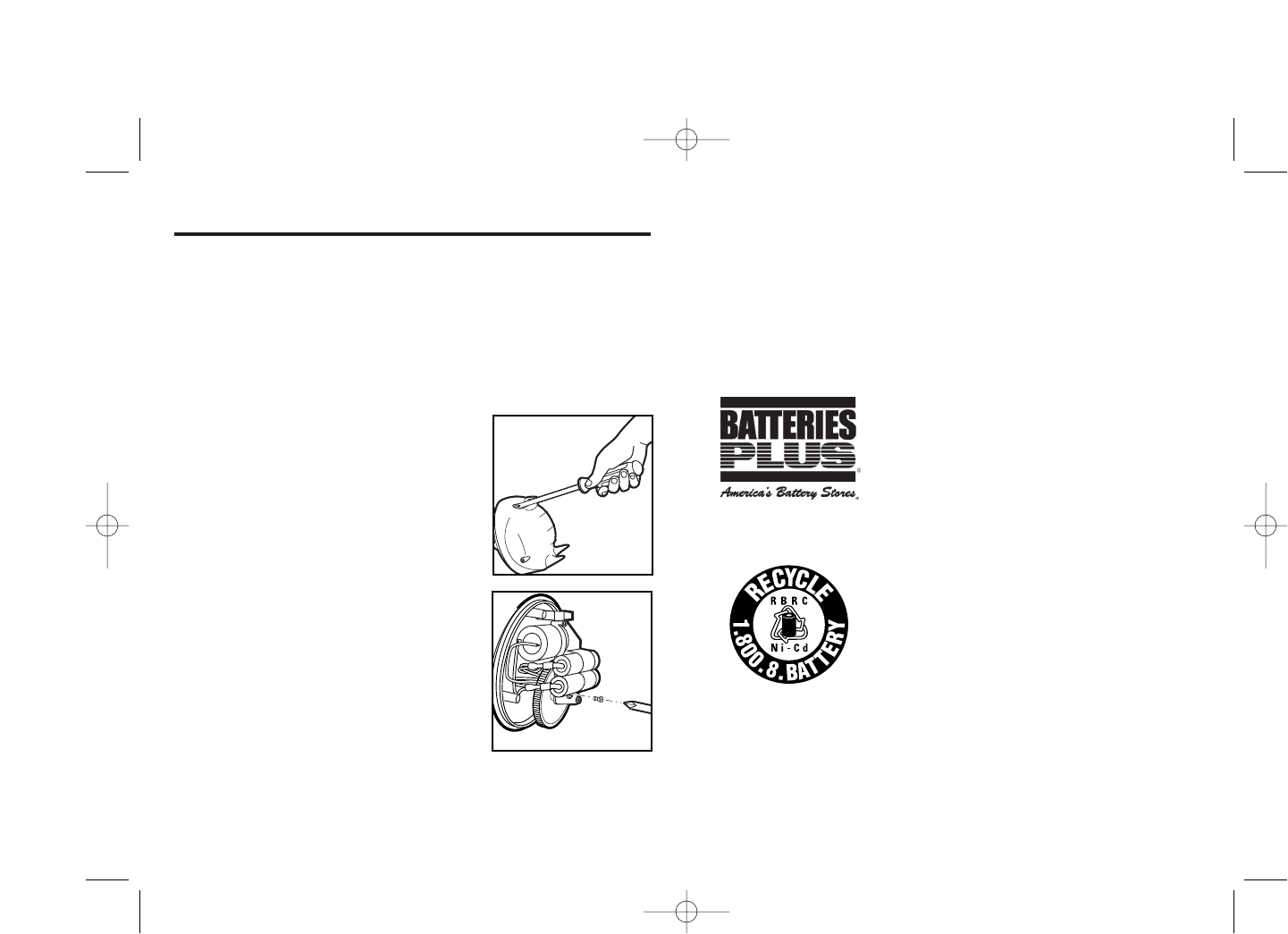
7
6
NOTE: If the batteries have leaked, put on protective rubber
gloves before touching the batteries. Under extreme conditions,
leaks from batteries can occur. If the battery liquid gets on
the skin, wash quickly with soap and water or neutralize area
with lemon juice, vinegar or other mild acid. If the liquid gets
into the eyes, immediately flush them with clean water for a
minimum of 10 minutes. Seek medical attention as
soon as possible.
Replacement:
In the United States, replacement batteries
can be purchased at Batteries Plus.
Call 1-800-MR-START (1-800-677-8278)
for store locations.
Disposal:
Your appliance manufacturer is concerned about protecting
the environment and, therefore, has chosen
to participate in the RBRC
®
(Rechargeable
Battery Corporation) recycling program. The
RBRC
®
is a non-profit organization whose
recycling programs adhere to all federal and
state mandates concerning the proper
collection, storage, and transportation of
nickel-cadmium batteries. The RBRC
®
Seal on the nickel-
cadmium battery pack indicates that the cost to recycle the
battery pack has already been paid. Call 1-800-8-BATTERY
to find the nearest retail collection site. You may also contact
your local recycling center for information on where to drop
off the used battery pack. For more information on RBRC
®
‚
check out their web site at www.rbrc.org.
Battery Removal and Disposal
This product uses nickel-cadmium rechargeable and recyclable
batteries. When the unit can no longer be recharged, the
batteries should be removed from the product and recycled or
disposed of properly. Do not incinerate or compost batteries,
as they will explode at high temperatures. Do not attempt to
replace batteries with batteries other than those supplied by
the manufacturer.
Removal:
1. Use a small Phillips screwdriver to
remove the screws on the back
of the can opener. Remove rear
cover.
2. Remove screw securing batteries.
Pull off terminal connectors to
remove batteries.
840133400 ENv00.qxd 1/21/05 8:36 AM Page 6



